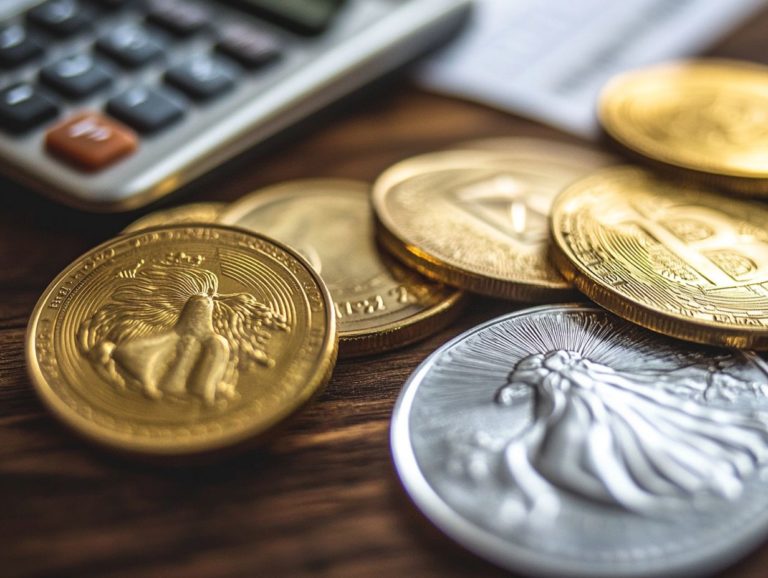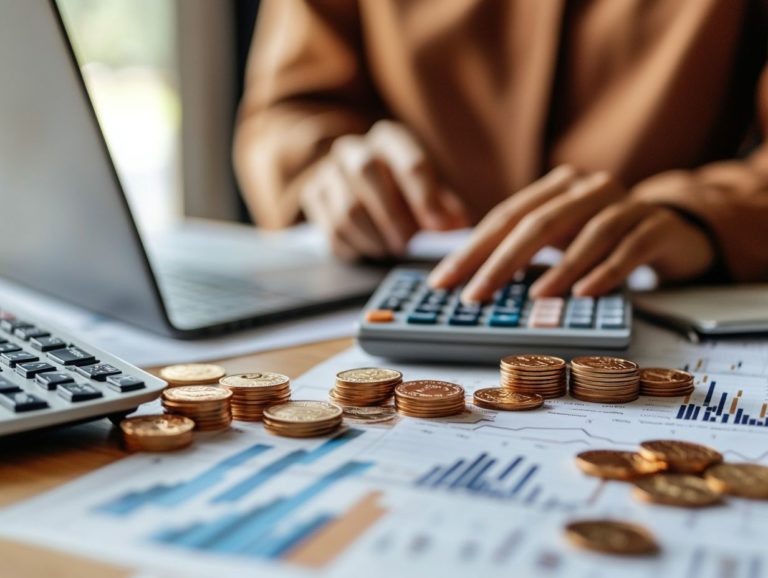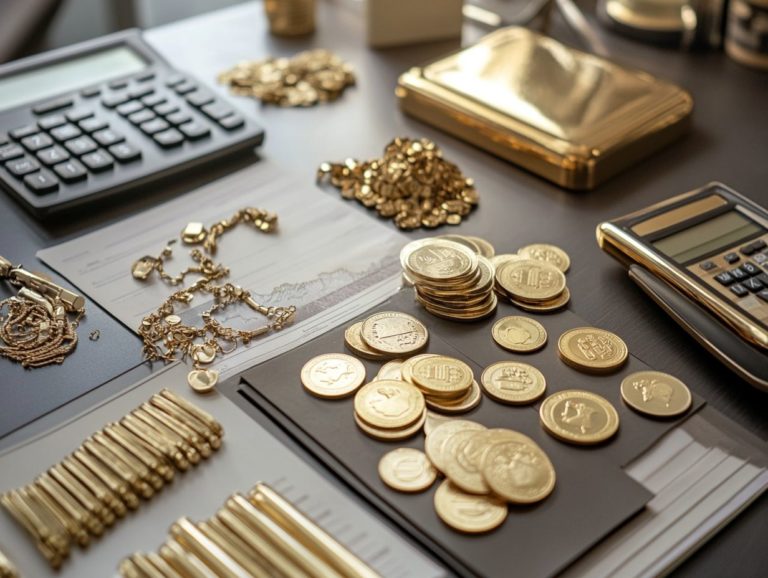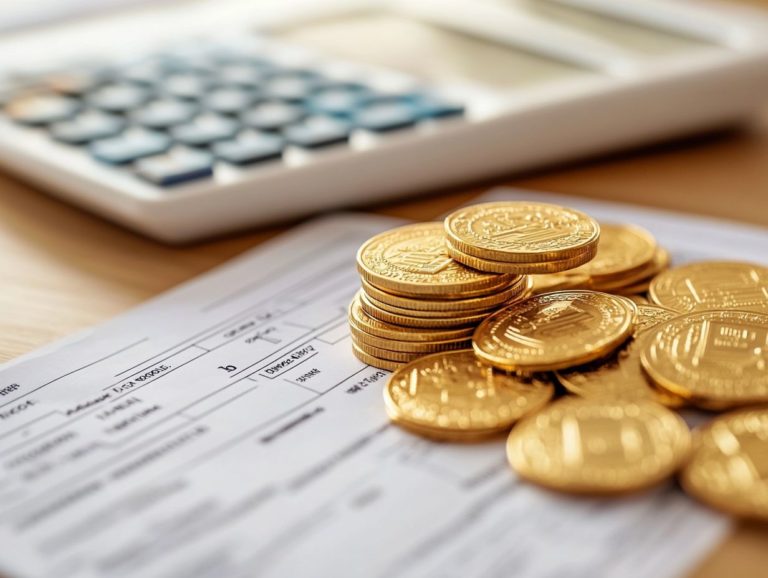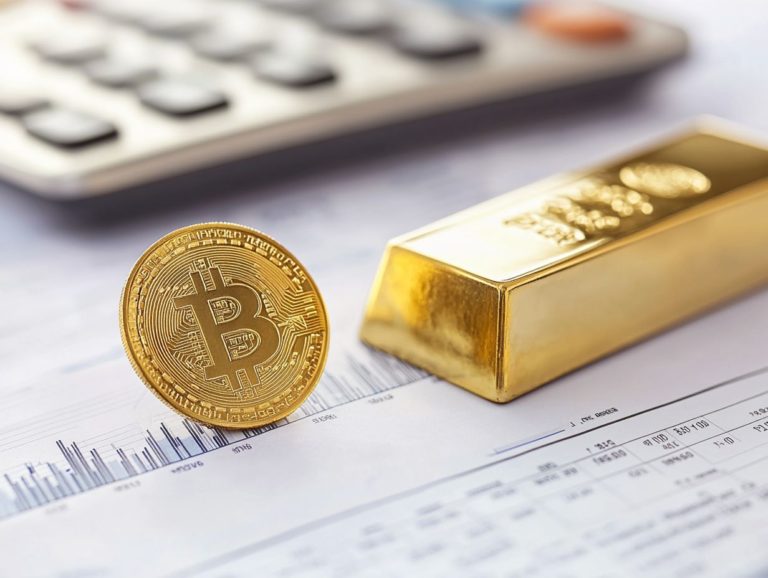The Tax Impact of Importing Precious Metals
Importing precious metals can be an exhilarating journey, yet it s crucial for you to grasp the intricacies involved.
This overview will walk you through the entire process, starting with the logistics of importing and delving into the tax implications that accompany it. You ll explore customs duties, potential tax exemptions, and how these factors can significantly affect your personal finances.
We ll also discuss returns on investment and weigh alternatives to importing. Whether you re a seasoned investor or just dipping your toes into this realm, this guide is designed to help you navigate the complexities of importing precious metals with confidence.
Contents
- Key Takeaways:
- Overview of Importing Precious Metals
- Tax Implications of Importing Precious Metals
- Impact on Personal Finances
- Navigating Tax Laws for Importing Precious Metals
- Alternatives to Importing Precious Metals
- Frequently Asked Questions
- What taxes apply when I import precious metals?
- Do I need to pay taxes when importing precious metals for personal use?
- Are there any exceptions or exemptions to paying taxes when importing precious metals?
- What are the penalties for not paying taxes when importing precious metals?
- How can I calculate the taxes I owe when importing precious metals?
- Are there any ways to minimize the tax impact of importing precious metals?
Key Takeaways:
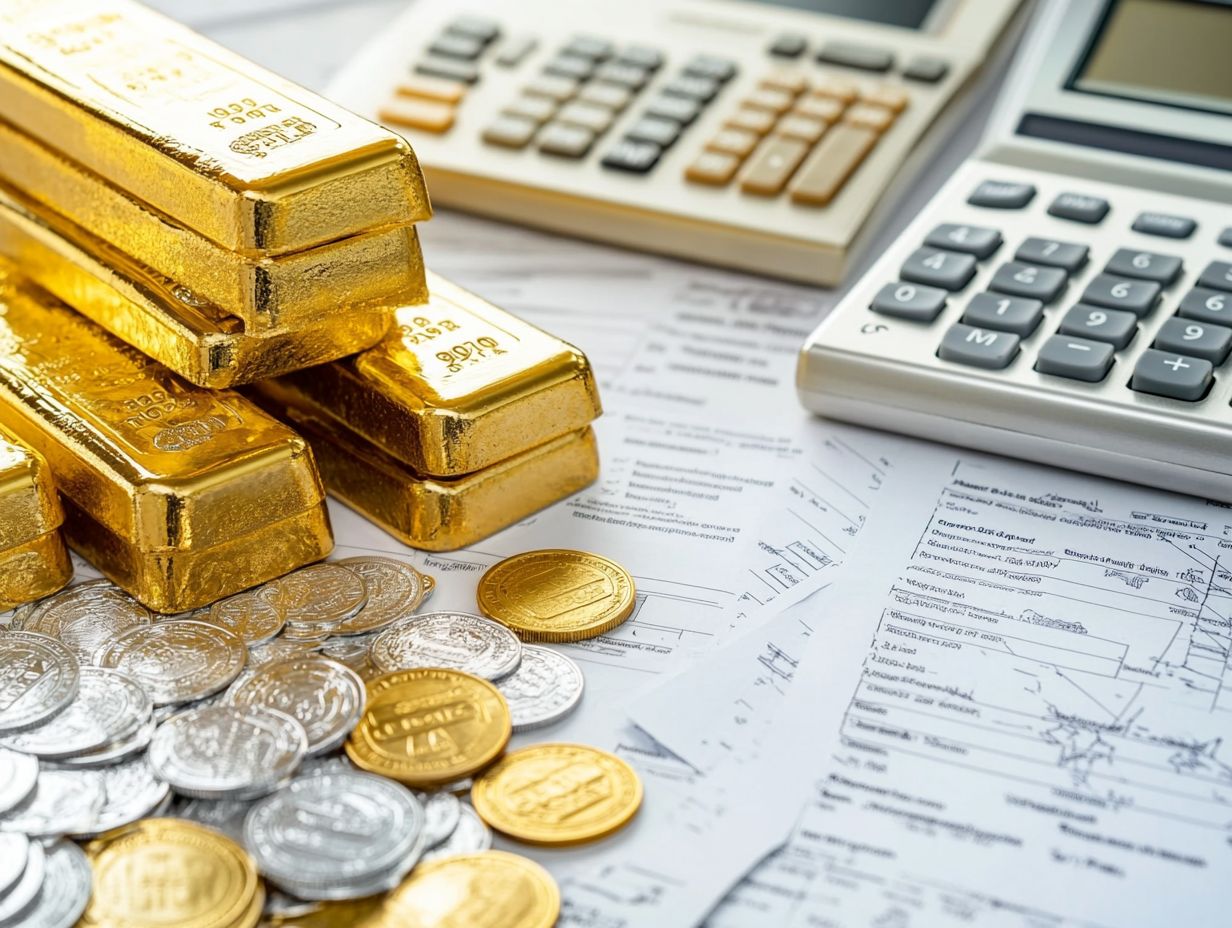
- Importing precious metals may incur customs duties and taxes, impacting the overall cost of the transaction.
- By understanding and complying with tax regulations, individuals can potentially minimize the tax impact of importing precious metals.
- Alternatives, such as purchasing locally, may be more cost-effective for individuals looking to invest in precious metals.
Overview of Importing Precious Metals
Importing precious metals like gold and silver is an exciting opportunity for savvy investors aiming to diversify your portfolio, hedge against inflation, and capitalize on the tangible value these collectibles provide.
It s essential to grasp the processes and implications involved. Pay close attention to factors such as market value, customs regulations, and IRS guidelines (the Internal Revenue Service, which is responsible for tax collection).
With the demand for precious metals shifting, navigating the complexities of your investment options becomes vital for making savvy financial choices.
This overview will delve into the various facets of importing precious metals, including associated costs, tax implications, and the potential benefits that await you as an investor.
Explanation of Importing Precious Metals
Importing precious metals requires you to navigate specific regulations and guidelines set by the IRS, covering both gold and silver.
This intricate process starts with gathering all necessary documentation, including import permits and invoices that clearly outline the origins and value of your metals.
Once your shipment arrives, customs procedures kick in; you must declare the metals and may need to present proof of compliance with IRS regulations concerning the taxation and reporting of precious metals.
Understanding the various forms and schedules mandated by the IRS is crucial, especially if you re dealing with significant quantities. Proper adherence can help you avoid penalties and streamline your transactions. Staying updated on any changes in these regulations is vital for maintaining compliance while safeguarding your investments.
Tax Implications of Importing Precious Metals
Grasping the tax implications of importing precious metals is crucial for you as an investor. This knowledge can profoundly influence your overall investment strategy and potential returns, especially regarding capital gains and the reporting requirements set forth by the IRS.
Customs Duties and Taxes
When importing precious metals, you must consider customs duties and taxes, as they play a crucial role in shaping the overall cost and investment potential. Compliance with IRS standards and reporting requirements is not just advisable; it’s essential.
Understanding these fees is vital. They can substantially impact the cost basis of your investment. For example, you might encounter import duties that fluctuate by country, in addition to value-added taxes or sales taxes that can further inflate your expenses. Additionally, it’s crucial to consider the importance of tax planning for precious metals investors to navigate these financial aspects effectively.
These extra costs not only eat into your immediate profit margin but also affect your long-term return on investment. By meticulously accounting for all applicable fees, you empower yourself to make informed decisions and strategically plan your purchases, thereby protecting your financial interests as you navigate the intricacies of importing gold and silver. Additionally, it’s crucial to consider the tax effects of precious metals investments to avoid unforeseen liabilities.
Tax Exemptions and Rebates
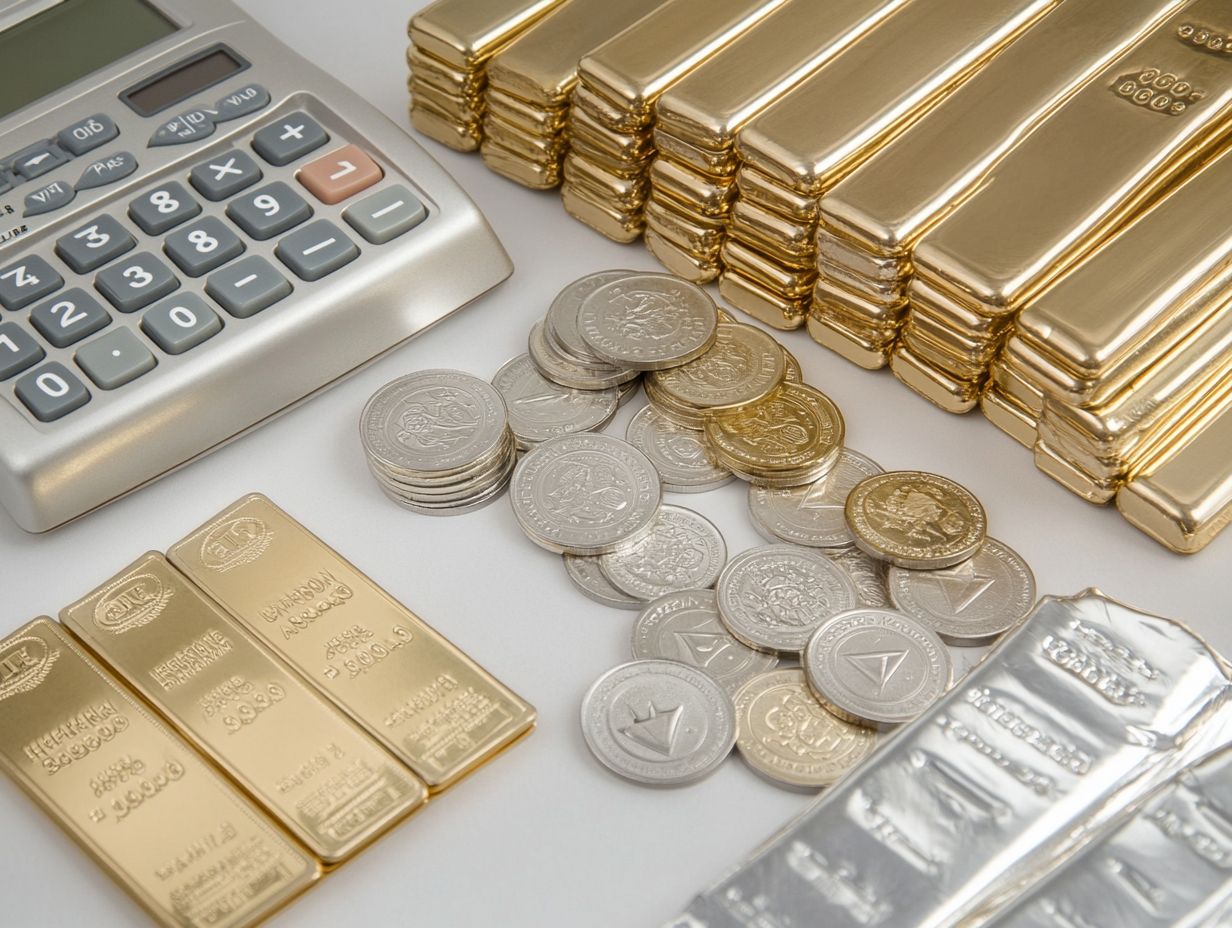
Tax exemptions and rebates for importing precious metals can offer you significant financial advantages. These advantages allow you to craft optimized investment strategies in line with IRS regulations.
By lightening your overall tax burden, these incentives can inspire you to view gold and silver as compelling investment options. Certain jurisdictions may provide exemptions that reduce capital gains taxes when you sell or trade these metals. Understanding tax credits related to precious metals empowers you to make informed decisions about your portfolio.
With careful planning, potential rebates can effectively reduce your taxable gains. This creates a more favorable investment landscape as you explore the role of precious metals in tax-deferred accounts.
Impact on Personal Finances
The impact of importing precious metals on your personal finances can be significant. You need to carefully consider the costs associated with bringing these tangible assets into your portfolio and how they influence your overall investment returns, especially regarding the current market value.
Cost of Importing Precious Metals
The cost of importing precious metals involves various factors, including shipping fees, insurance, and customs duties. All these can significantly impact your total investment expenditure.
Beyond these primary costs, account for handling fees from logistics providers and any regulatory compliance charges that may arise. These expenses can quickly add up, particularly with high-value items where secure transportation is crucial. Additionally, it’s important to consider the implications of international tax on gold investments, as exchange rate fluctuations can also affect the final price you pay as an importer.
Understanding these components is vital for anyone stepping into the precious metals market, as they shape the overall financial commitment required for such investments.
Potential Investment Returns
Investing in precious metals like gold and silver can lead to impressive returns don t miss your chance! This underscores the importance of strategic timing and thorough market analysis.
For anyone considering such an investment, understanding market trends is essential. Keep a keen eye on geopolitical events political happenings in different countries that can affect global markets economic indicators, and shifts in demand. These factors can significantly impact your potential returns. Timing your entry and exit points influences profitability and helps mitigate the risks typically associated with price volatility.
By leveraging historical data and forecasting techniques, you can position yourself to capitalize on upward trends. This ensures you secure a favorable purchase price and maximize your investment potential as the market evolves.
Navigating tax laws for importing precious metals demands a comprehensive grasp of IRS regulations and compliance measures. This knowledge is vital for you as an investor to avoid unforeseen liabilities.
Understanding and Complying with Tax Regulations
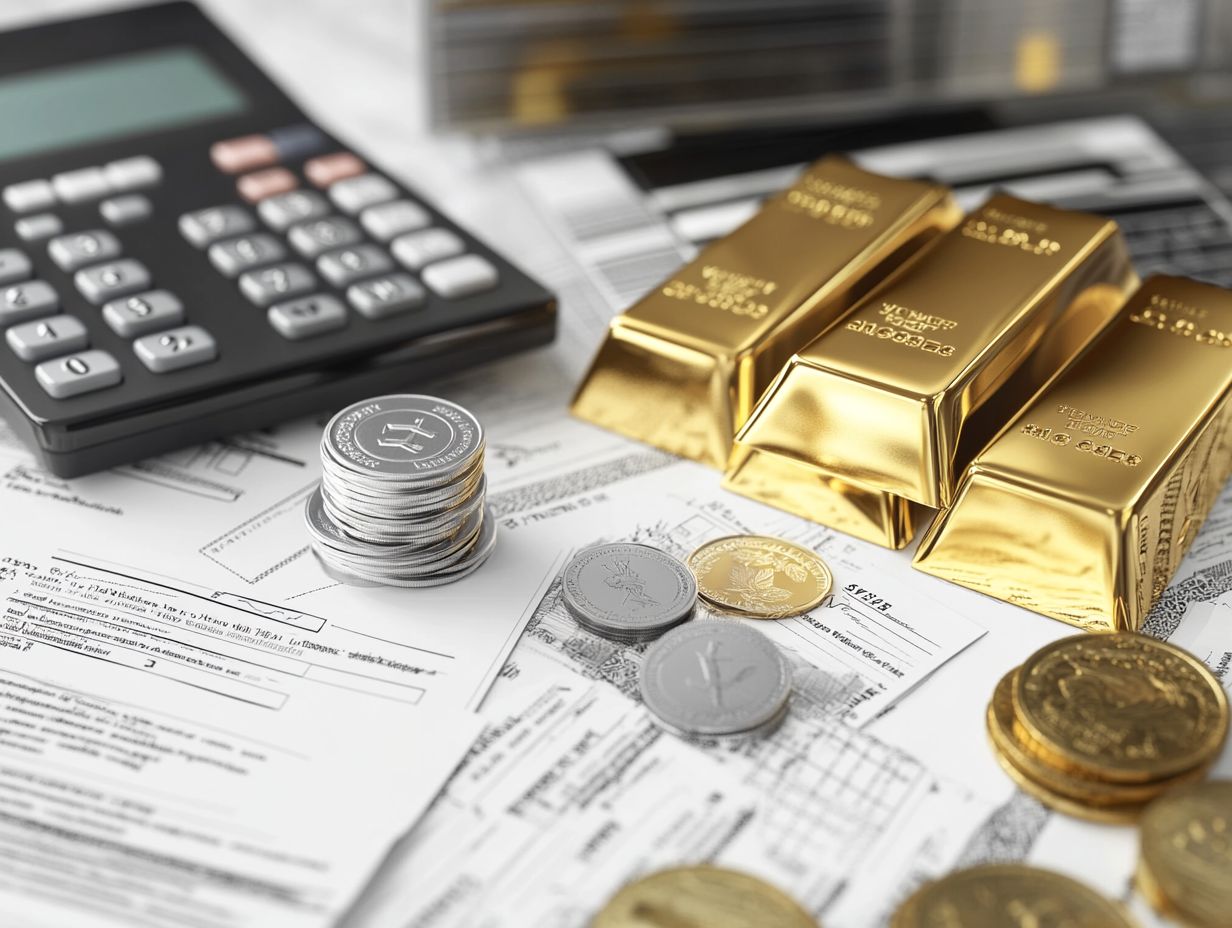
Understanding and complying with tax regulations is crucial for you as an investor looking to import precious metals. Adhering to IRS guidelines can significantly influence your financial outcomes and legal standing.
Navigating the complexities of these rules involves several important steps:
- Familiarize yourself with IRS regulations and relevant state laws. Identify the correct classifications of precious metals, as different categories carry varying tax implications. For more details, check out the impact of tax policy changes on precious metals.
- Maintain detailed records of your transactions, including receipts and invoices. This will aid in accurate reporting and prepare you for any audits.
- Know the reporting requirements like necessary forms and deadlines. This is key to ensuring compliance and avoiding penalties.
Regularly consulting with a tax professional who specializes in this area can provide valuable insights and assistance, making your import process smoother and more efficient.
Alternatives to Importing Precious Metals
Exploring alternatives to importing precious metals opens up a treasure trove of options for acquiring gold and silver locally. This approach simplifies the buying process and helps you effectively achieve your investment goals.
Exploring Local Options for Purchasing Precious Metals
Local dealers offer a personalized experience. You can inspect the quality and authenticity of items in person.
Attending local auctions can reveal unique opportunities. This often allows you to secure gems at competitive prices.
You can browse local options from home, supporting local businesses as online marketplaces continue to grow.
With a variety of avenues at your disposal, navigating this landscape becomes effortless. You can discover the perfect pieces to enhance your investment portfolio without the headaches of international transactions.
Frequently Asked Questions
What taxes apply when I import precious metals?
The taxes involved in importing precious metals vary depending on the country and type of metal. Common taxes include import duties, value-added tax (VAT) a tax added to the price of goods and excise taxes.
Do I need to pay taxes when importing precious metals for personal use?
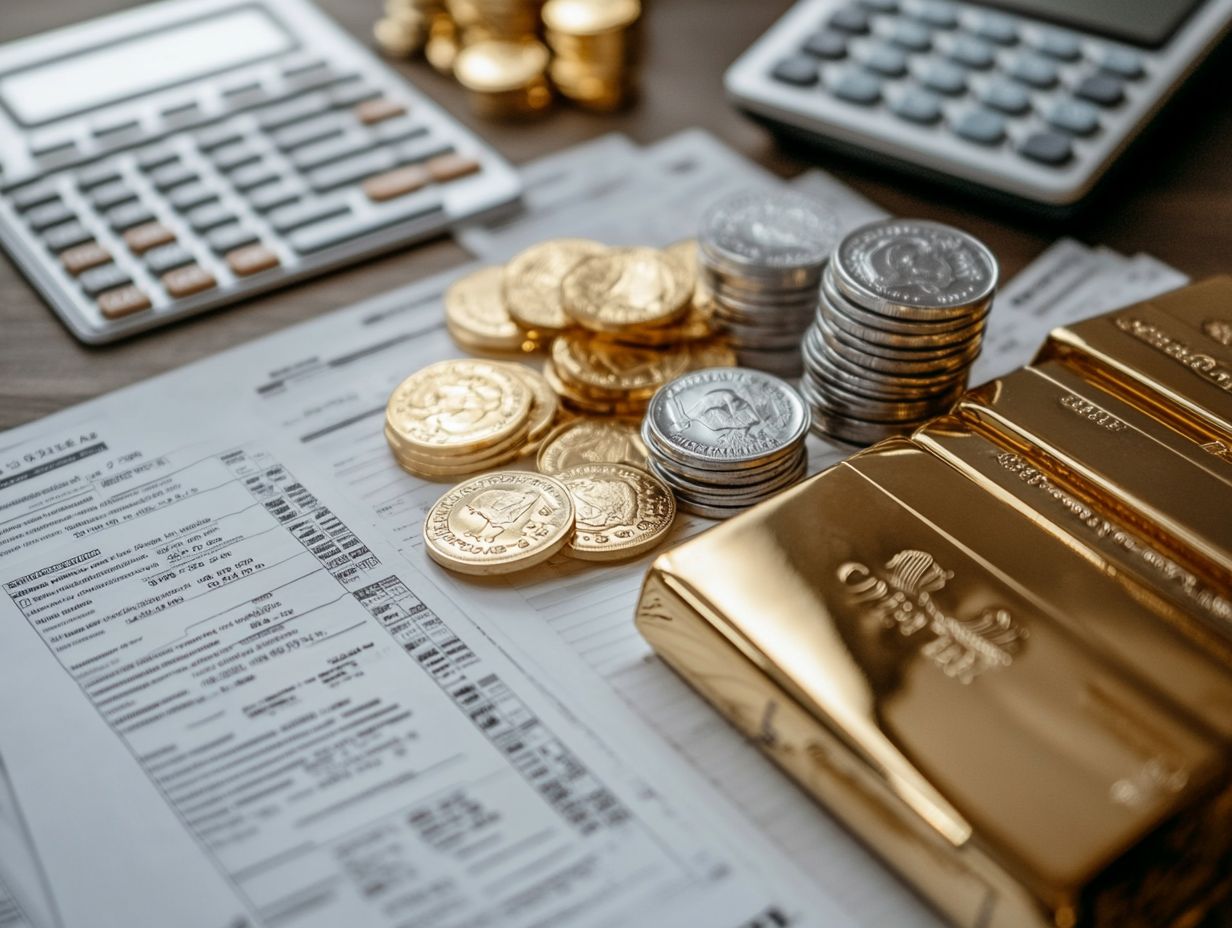
Yes, you will still need to pay taxes when importing precious metals for personal use. The taxes may be lower than importing for commercial purposes, but they still apply.
Are there any exceptions or exemptions to paying taxes when importing precious metals?
Some countries may have exceptions or exemptions for specific types of precious metals or for small quantities imported for personal use. It is crucial to research the specific regulations of the country you are importing to.
What are the penalties for not paying taxes when importing precious metals?
The penalties for not paying taxes when importing precious metals vary depending on the country and the amount owed. They can range from fines to seizure of the precious metals or even criminal charges in some cases.
How can I calculate the taxes I owe when importing precious metals?
You can calculate the taxes owed by researching the current tax rates for the country you are importing to. Use the value of the precious metals to determine the amount owed and consult with a tax advisor for accurate calculations.
Are there any ways to minimize the tax impact of importing precious metals?
Yes, strategies like using a bonded warehouse, utilizing tax-free zones, or taking advantage of free trade agreements can help minimize the tax impact. However, these options may not be available in all countries, so it’s essential to research and consult with a tax advisor before importing.
Check out local dealers today to discover unique opportunities for acquiring precious metals!











